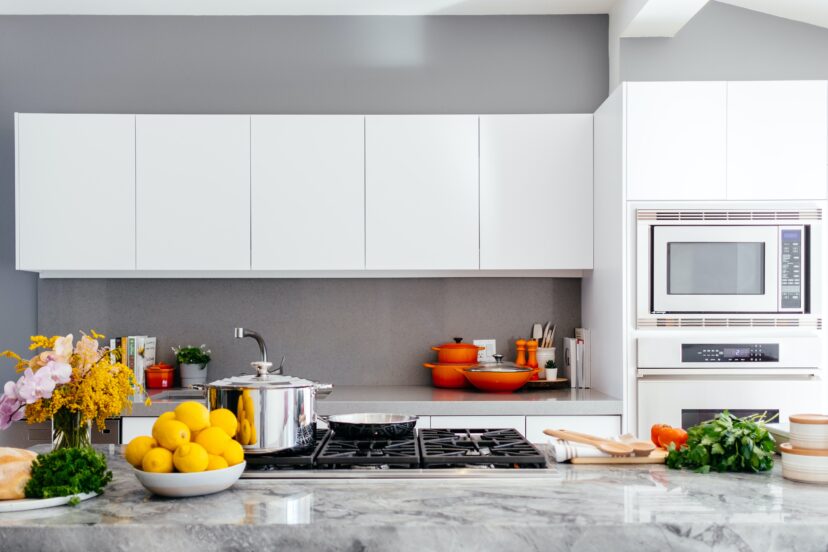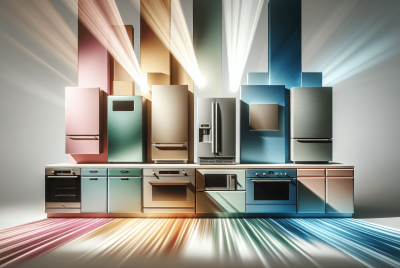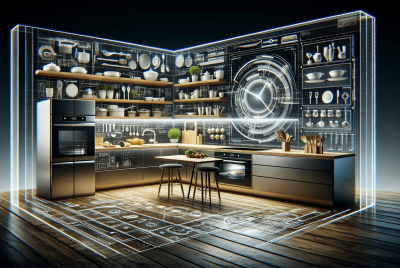Can Smart Kitchen Devices Assist Individuals With Disabilities?
In this article, we will explore how smart kitchen devices can help individuals with disabilities in their everyday lives. You will learn about the various devices available and how they can be customized to meet specific needs. We will also discuss the potential benefits and challenges of using these devices. By the end of this article, you will have a better understanding of how smart kitchen devices can enhance independence and accessibility for individuals with disabilities.

This image is property of images.unsplash.com.
Overview
Understanding smart kitchen devices
Smart kitchen devices are a technological innovation that aims to improve the cooking experience by providing convenience, efficiency, and accessibility. These devices are equipped with advanced features and functions that can be controlled remotely or through voice commands, making them particularly helpful for individuals with disabilities who may face challenges in performing daily tasks.
Defining disabilities
Disabilities are physical, sensory, mental, or cognitive impairments that can restrict a person’s ability to carry out everyday activities. These disabilities can include mobility limitations, visual or hearing impairments, and cognitive difficulties. Individuals with disabilities often encounter barriers when it comes to navigating traditional kitchens and performing tasks such as cooking,. Thus, smart kitchen devices offer a promising solution to address these challenges.
Challenges Faced by Individuals with Disabilities
Accessibility issues in traditional kitchens
Traditional kitchens are not always designed with accessibility in mind. Countertops, cabinets, and appliances are often positioned at heights that are difficult for individuals with mobility issues to reach. This lack of accessibility can restrict their ability to independently prepare meals and can result in frustration and a loss of independence.
Difficulties in performing daily tasks
Individuals with disabilities may face difficulties in performing daily tasks such as chopping ingredients, controlling heat on stovetops, or carrying heavy pots and pans. These tasks can be physically demanding and challenging, leaving individuals feeling discouraged or incapable.
Benefits of Smart Kitchen Devices for Individuals with Disabilities
Increased accessibility
Smart kitchen devices are designed to improve accessibility and make daily tasks easier for individuals with disabilities. For example, adjustable countertops and cabinets can be lowered or raised to accommodate someone using a wheelchair or with limited mobility.
Assistance in daily tasks
Smart kitchen devices also assist with daily tasks by automating processes that may be challenging for individuals with disabilities. For instance, smart ovens can be controlled remotely, enabling someone with limited mobility to safely and easily cook their meals. voice-controlled assistants can also provide step-by-step instructions for cooking, making it easier for individuals with cognitive disabilities to follow recipes and complete tasks.
Types of Smart Kitchen Devices
Smart appliances
smart appliances, such as refrigerators, ovens, and dishwashers, are connected to the internet and can be controlled remotely or through voice commands. These appliances offer features that enhance accessibility, such as adjustable temperature settings and automated cleaning cycles.
Voice-controlled assistants
Voice-controlled assistants, like Amazon Alexa or Google Assistant, can be integrated into the kitchen environment to provide hands-free operation. These assistants can help individuals with disabilities by answering questions, setting timers, converting measurements, and even ordering groceries.
Automated kitchen systems
Automated kitchen systems take smart kitchen devices to the next level. These systems include features such as automated faucets, smart lighting, and motion-sensitive countertops. These advancements improve accessibility and reduce the need for manual operation, making tasks easier for individuals with disabilities.
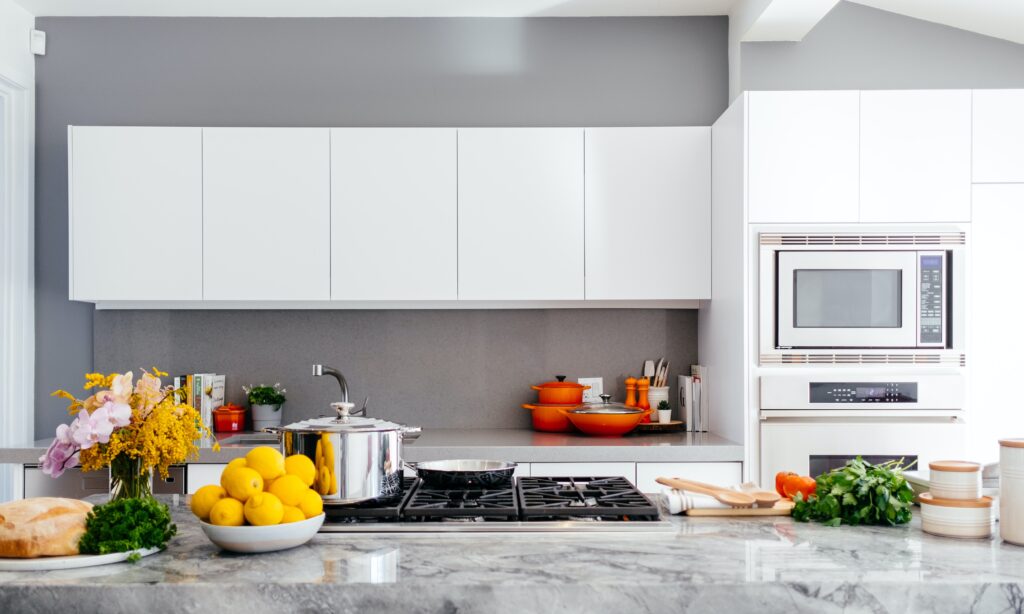
This image is property of images.unsplash.com.
Features and Functions of Smart Kitchen Devices
Hands-free operation
One of the significant benefits of smart kitchen devices is their hands-free operation capability. This feature allows individuals with disabilities to control and interact with the devices using voice commands, reducing the need for physical exertion and manual dexterity.
Voice commands
Smart kitchen devices can be programmed to respond to specific voice commands. This function allows individuals with disabilities to control appliances and perform tasks simply by speaking. For example, someone with limited mobility can ask their voice-controlled assistant to preheat the oven or turn off the stove.
Remote control features
Remote control features enable individuals with disabilities to activate and adjust the settings of their smart kitchen devices from a distance. This function is particularly useful for individuals with mobility limitations who may find it challenging to reach and operate appliances within the kitchen.
Considerations when Choosing Smart Kitchen Devices
Compatibility with existing infrastructure
When choosing smart kitchen devices, it is crucial to consider their compatibility with existing infrastructure. Ensure that the devices can seamlessly integrate with your current appliances, as well as with other smart home systems you may have.
Customizable settings
Look for smart kitchen devices that offer customizable settings. This allows individuals with disabilities to personalize the devices according to their needs and preferences. For example, adjustable volume settings on voice-controlled assistants can benefit individuals with hearing impairments.
Support and maintenance
Ensure that the smart kitchen devices you select come with reliable support and maintenance options. In case of any issues or technical difficulties, it is important to have access to customer support and appropriate repair services.
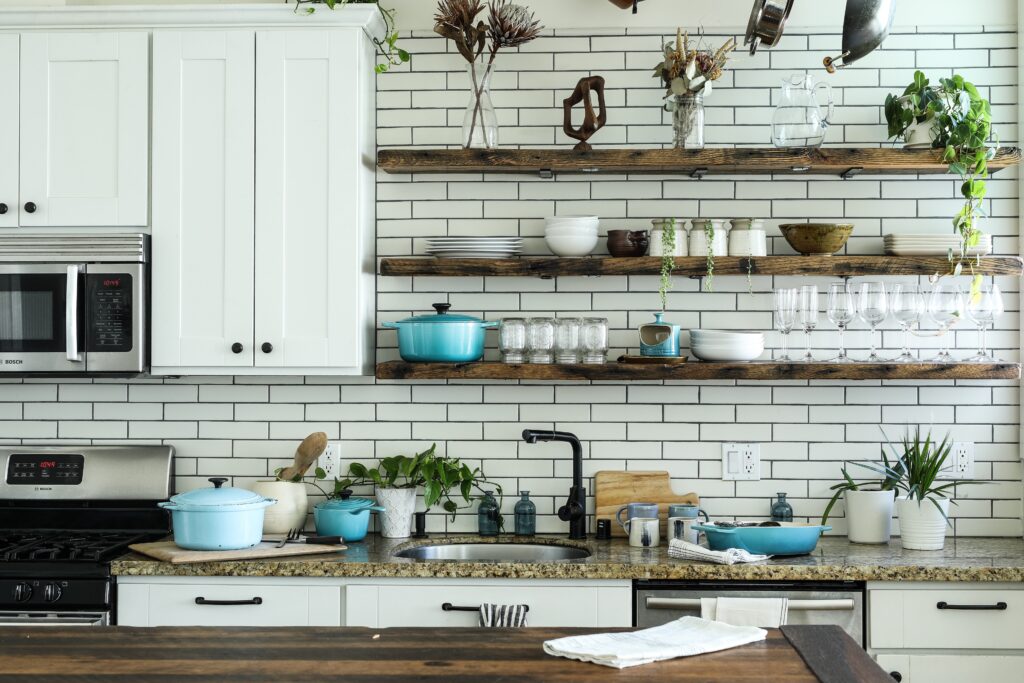
This image is property of images.unsplash.com.
Implementation and Integration
Installing and setting up smart kitchen devices
Installing and setting up smart kitchen devices can vary depending on the specific device and brand. It is recommended to follow the manufacturer’s instructions and, if needed, seek professional assistance to ensure proper installation.
Syncing with other smart home systems
To maximize the benefits of smart kitchen devices, consider integrating them with other smart home systems you may already have in place. This synchronization can create a seamless and interconnected environment, allowing for centralized control and enhanced functionality.
Success Stories
Personal accounts of individuals with disabilities
Many individuals with disabilities have shared their success stories and experiences with smart kitchen devices. These personal accounts highlight the positive impact these devices have had on their lives, enabling them to regain independence and enjoy the cooking experience.
Impact of smart kitchen devices on their lives
Individuals with disabilities often express how smart kitchen devices have positively impacted their lives by improving accessibility and simplifying daily tasks. These devices have allowed them to regain confidence, autonomy, and a sense of accomplishment in the kitchen.
Barriers and Limitations
Cost constraints
One of the barriers to implementing smart kitchen devices for individuals with disabilities is the cost factor. Smart kitchen devices can be more expensive compared to traditional appliances, making them less accessible to some individuals with disabilities.
Technological limitations
While smart kitchen devices offer numerous benefits, they are not without limitations. Technological glitches or malfunctions can occur, requiring troubleshooting or repairs. Additionally, it is important to ensure that individuals with disabilities have a grasp of the technology and are comfortable using it.
Fear of dependency
Some individuals with disabilities may be hesitant to rely too heavily on smart kitchen devices due to fear of becoming too dependent on technology or losing their independence. It is essential to strike a balance and encourage individuals to use these devices as tools to enhance their capabilities rather than as a substitute for their own abilities.
Conclusion
Can smart kitchen devices assist individuals with disabilities? Absolutely. The advent of smart kitchen devices has revolutionized the cooking experience for individuals with disabilities. By increasing accessibility, providing assistance with daily tasks, and offering a wide range of features and functions, these devices empower individuals to regain control of their kitchen and improve their overall quality of life. With careful consideration of compatibility, customization, and maintenance, these devices can truly transform the lives of individuals with disabilities, making cooking more accessible, enjoyable, and fulfilling. So, if you or someone you know is facing difficulties in the kitchen due to a disability, consider exploring the world of smart kitchen devices and discover the freedom and independence they can bring.

